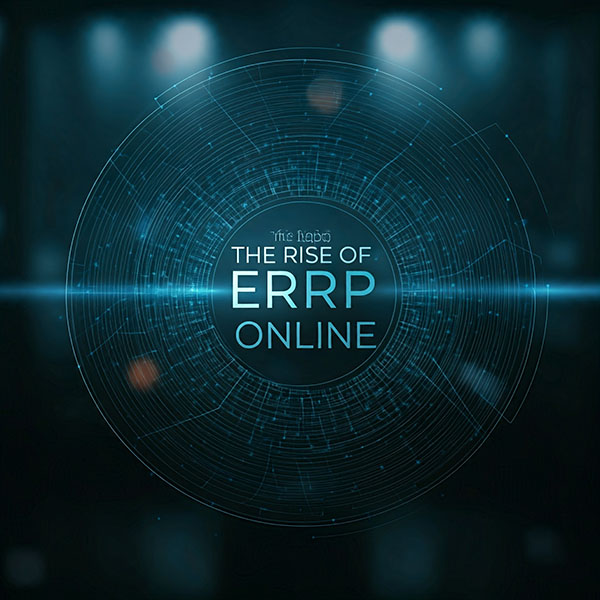The Rise of ERP Online: Transforming Business Management in the Digital Age
In today’s fast-paced business world, efficiency and adaptability are key to staying competitive. Enter ERP online solutions, a game-changer for businesses looking to streamline their operations and enhance productivity. But what exactly is ERP online, and why should businesses consider it? Let’s dive into the details!

What is ERP?
Enterprise Resource Planning (ERP) is a type of software that organizations use to manage their day-to-day activities. This can include everything from accounting and procurement to project management and risk management. Think of it as a central nervous system for your business, integrating various functions into one cohesive system.
Benefits of ERP Systems
- Improved Efficiency: By automating repetitive tasks, ERP systems can save time and reduce errors.
- Data Accuracy: With a single source of truth, data across departments is consistent and accurate.
- Better Reporting: ERP systems offer advanced reporting tools, providing real-time insights into your business.
- Enhanced Collaboration: Departments can share information more easily, leading to better teamwork.
What Does “Online” Mean in ERP?
When we talk about ERP online, we’re referring to cloud-based ERP solutions. This means that instead of hosting the software on local servers, businesses access it via the internet. Here are some key characteristics of ERP online:
Accessibility
With ERP online, you can access your business data from anywhere, at any time, as long as you have an internet connection. This is especially useful for remote teams and businesses with multiple locations.
Scalability
Cloud-based ERPs can grow with your business. Whether you’re adding new users or integrating additional functions, scaling up or down is often seamless.
Cost-Effectiveness
Typically, online ERP solutions have lower upfront costs than traditional systems. You pay for what you use, which can be more manageable for businesses, especially startups.
Why Choose ERP Online?
1. Flexibility
One of the standout features of ERP online systems is flexibility. Businesses can choose specific modules to implement, ensuring they only pay for what they need. As your business evolves, so can your ERP solution.
2. Enhanced Security
Cloud ERP providers invest heavily in security measures to protect their customers’ data. With features like encryption, regular backups, and advanced security protocols, businesses can often achieve a higher level of security than with on-premise solutions.
3. Regular Updates
Cloud ERP systems are typically updated automatically. This means you’ll always have access to the latest features and security patches without the hassle of manual updates.
4. Collaboration Tools
Many ERP online solutions come equipped with built-in collaboration tools, allowing teams to work together more effectively. Features like shared dashboards and project management tools can enhance productivity.
Key Features to Look for in an ERP Online Solution
When selecting an ERP online system, consider these essential features:
1. User-Friendly Interface
An intuitive interface can significantly reduce the learning curve for employees, enabling faster adoption.
2. Customization Options
Every business is unique, so look for an ERP that allows for customization to fit your specific needs.
3. Integration Capabilities
Your ERP should easily integrate with existing systems (like CRM, HRM, etc.) to avoid data silos.
4. Mobile Accessibility
In a world where remote work is becoming the norm, having a mobile-friendly ERP system can enhance productivity on the go.
Challenges of Implementing ERP Online
While the benefits are numerous, there are also challenges associated with transitioning to an ERP online solution:
1. Data Migration
Transferring data from old systems to a new ERP can be complex and time-consuming. It’s essential to plan this phase carefully to avoid data loss.
2. Change Management
Employees may resist change, particularly if they are accustomed to existing processes. Comprehensive training and support are vital for a smooth transition.
3. Choosing the Right Vendor
With many ERP providers in the market, selecting the right one can be overwhelming. Research, read reviews, and seek recommendations to make an informed decision.
Conclusion
ERP online systems are revolutionizing the way businesses operate. With their flexibility, cost-effectiveness, and advanced features, they empower organizations to streamline processes and make data-driven decisions. While challenges exist, the benefits of adopting an online ERP system far outweigh the drawbacks.
If you’re considering making the switch, take the time to research and find the right solution for your business needs.
FAQs
1. What industries benefit from ERP online solutions?
ERP online solutions are versatile and can benefit industries like manufacturing, retail, healthcare, and finance, among others.
2. How long does it take to implement an ERP online system?
Implementation times can vary widely, but typically, it can take anywhere from a few weeks to several months, depending on the complexity of your business needs.
3. Are online ERP systems secure?
Yes, reputable cloud ERP providers use advanced security measures, including data encryption and regular backups, to protect your information.
4. Can ERP online solutions be customized?
Absolutely! Most online ERP systems offer various customization options to fit your specific business processes.
5. What is the cost of ERP online solutions?
Costs vary based on the vendor, the features you need, and the number of users. Many providers offer subscription-based pricing, which can be more affordable for businesses.
OERP Online offers robust security features, including data encryption, multi-factor authentication, and regular security updates to protect sensitive business data.